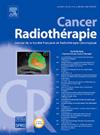[放射肿瘤学中的事件和错误:协调视角,支持护理]。
IF 1.5
4区 医学
Q4 ONCOLOGY
引用次数: 0
摘要
事件 "一词涵盖了肿瘤放射治疗中的各种具体情况,从特别强烈的放射相关副作用到可能出现的技术或人为错误。尽管质量程序是肿瘤放疗科运行中不可或缺的一部分,以确保对此类事件进行分析和预防,但在放射治疗过程中发生的此类事件仍会对患者及其治疗过程的体验以及医护人员产生重大影响。如果事件发生在错误发生之后,这些实际的、情感的和象征性的影响就会更大。因此,伦理方法包括三个基本阶段:认识到事件本身、将事件告知相关人员以及最后为继续治疗创造条件。每个阶段都有具体的问题,需要采取复杂的伦理方法,不断调和患者和医疗专业人员可能存在的不同看法。事件的发生也可能导致多层面的真正信任危机,医护人员也必须面对和支持这种危机。最后,事件的发生不仅使我们对病人的责任产生怀疑,也使我们对控制的理想产生怀疑。我们需要批判我们的绩效文化,重新思考我们处理事件和错误的方法,并将其视为积极变革的机会。本文章由计算机程序翻译,如有差异,请以英文原文为准。
Survenue d’un évènement ou d’une erreur en oncologie radiothérapie : concilier les perspectives pour préserver le soin
The term “event” covers a wide range of concrete situations in radiation oncology, from particularly intense radiation-related side effects to the possibility of technical or human error. Although quality procedures are an integral part of radiotherapy oncology department operations ensuring the analysis and prevention of such events, their occurrence during radiation treatment still has a significant impact on patients and their experience of the treatment process, as well as on health professionals. These practical, emotional and symbolic impacts are all the greater when the event occurs in the aftermath of an error. The ethical approach therefore comprises three essential stages: recognizing the event as such, informing those involved of the event and, finally, creating conditions for the continuation of care. Each of these stages is marked by specific issues and questions, requiring a complex ethical approach that constantly involves reconciling the possible divergent perceptions of patients and health professionals. The occurrence of an event can also lead to a genuine crisis of confidence with multiple dimensions, which health professionals will also have to face and to support. Finally, the occurrence of an event calls into question not only our responsibility towards patients, but also our ideal of control. We need to criticize our culture of performance, rethink our approach to events and errors, and see them also as opportunities for positive change.
求助全文
通过发布文献求助,成功后即可免费获取论文全文。
去求助
来源期刊

Cancer Radiotherapie
医学-核医学
CiteScore
2.20
自引率
23.10%
发文量
129
审稿时长
63 days
期刊介绍:
Cancer/radiothérapie se veut d''abord et avant tout un organe francophone de publication des travaux de recherche en radiothérapie. La revue a pour objectif de diffuser les informations majeures sur les travaux de recherche en cancérologie et tout ce qui touche de près ou de loin au traitement du cancer par les radiations : technologie, radiophysique, radiobiologie et radiothérapie clinique.
 求助内容:
求助内容: 应助结果提醒方式:
应助结果提醒方式:


